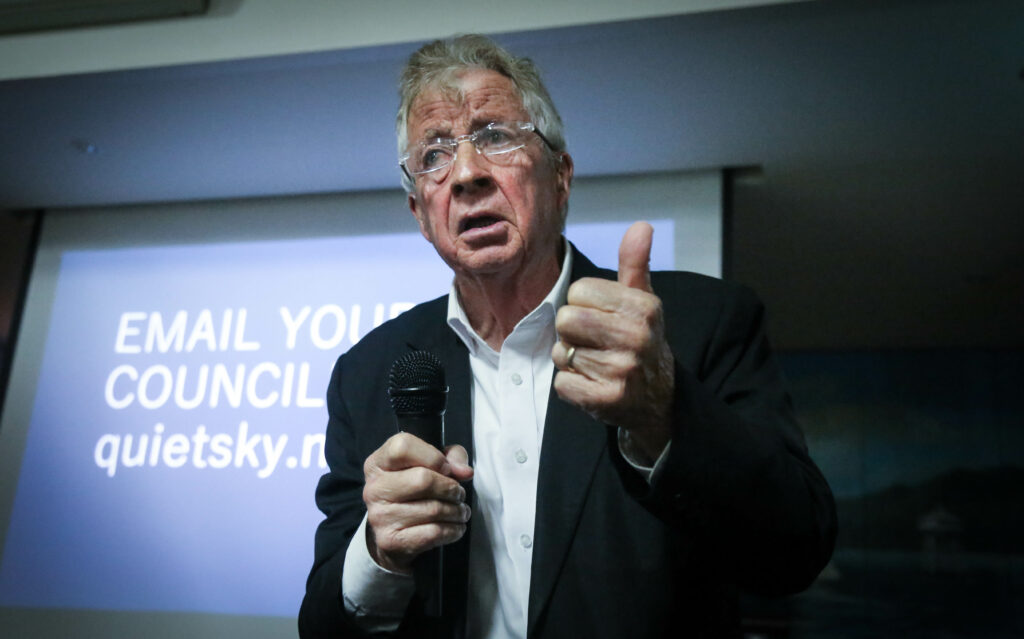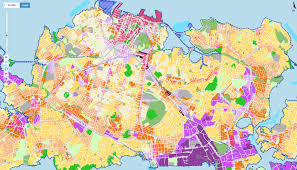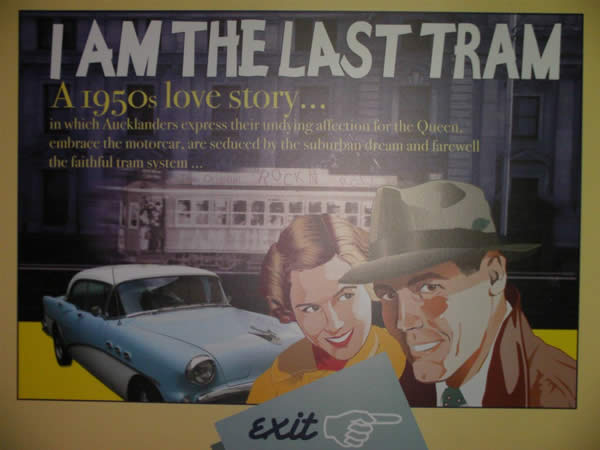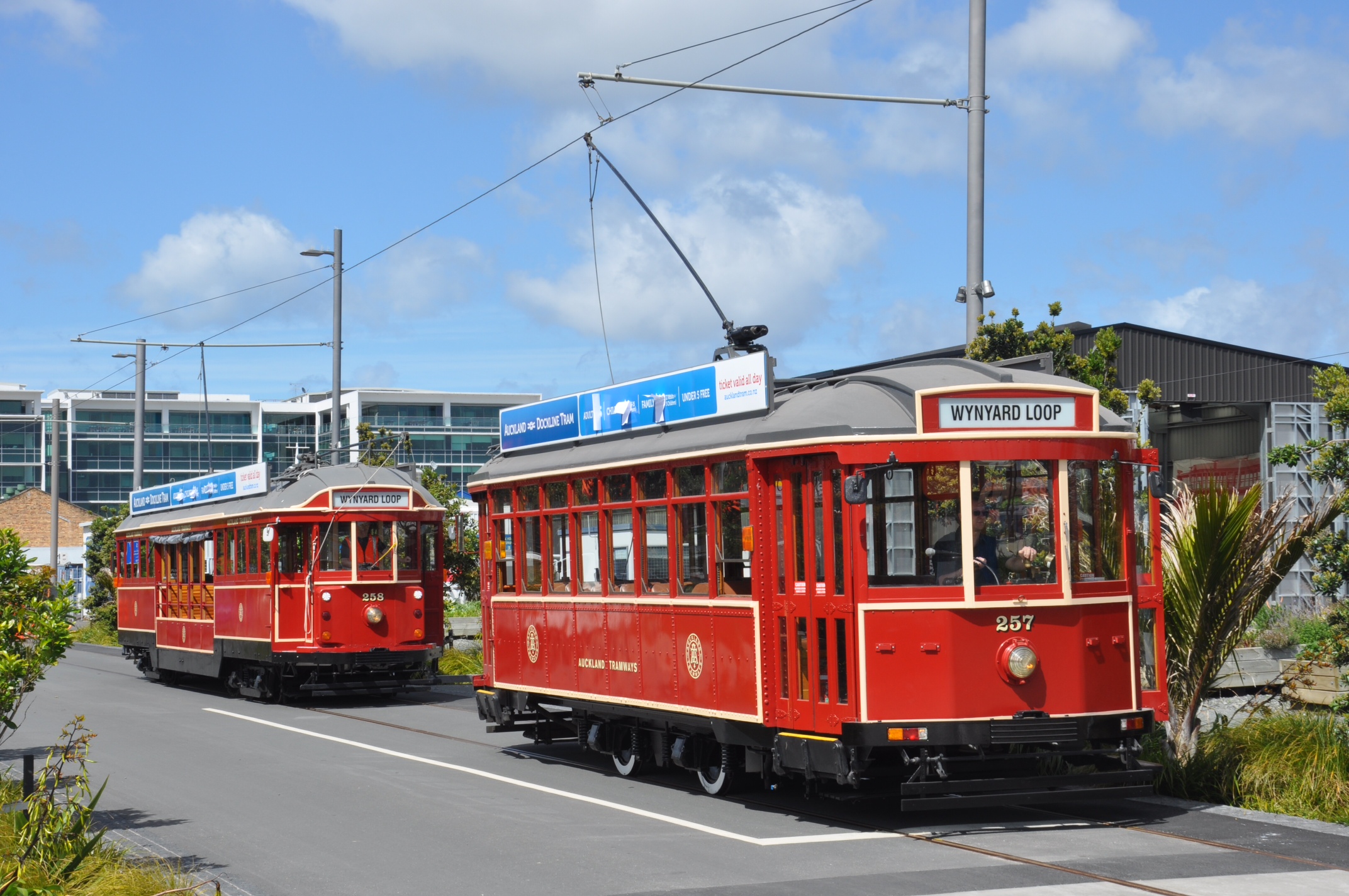High Noon for helipads – Notice of motion banning helipads in residential areas in the city blocked – but succeeds in the Gulf

Addressing the public meeting called by Quiet Sky Waitematā to support the notice of motion to make helipads in residential areas a prohibited activity under the Auckland Unitary Plan (photo Jonathan Killick)
Helipads and their ear-shattering impacts on neighbours have been highly controversial in recent years, especially so in this ward. The issue has been brought to a head agaIn by the application in Rawene Avenue, Westmere. In a 5-day hearing, Quiet Sky Waitematā, its legal counsel and experts, Herne Bay Residents Assn (HBRA), and 1306 residents (87% of submissions) submitted against. Not surprisingly, the shock decision by council’s independent hearing commission to approve sparked an uproar. Commission chair Kit Littlejohn’s arguments justifying the decision drives a legal truck-bomb into the middle of the Auckland Unitary Plan, with implications not just for helipads.
Council planners maintain that under the Auckland Unitary Plan, helipads in residential areas, are a ‘non-complying’ activity (expensive to obtain consent but by no means impossible). But the Littlejohn hearing panel disagreed, ruling that helipads are a permitted activity based on the bizarre logic that helicopter transport is an ‘inherently residential’ activity – like the family car.
Deeply embarrassed at the prospect of a helipad free-for-all, council planners want to return to the status quo ante but legally can’t appeal the council’s own decision. They only have themselves to blame. Leaving aside the decision which implies council planners don’t understand their own Unitary Plan, it must be asked, given Mr Littlejohn was a barrister for a previous Herne Bay helicopter application, why was he selected for such a contentious hearing in the first place?
Somewhat ironically council is being helped out of its fix by Quiet Sky which has appealed the decision to the Environment Court.
Public tolerance for this shambles has now reached its limits. Auckland Council has consented more private helipads in the Waitematā & Gulf ward than anywhere else in the country. In the Gulf islands, due to planning rules that are even more permissive, Waiheke has now 65 helipads with one in the pipeline, Great Barrier 12, while Herne Bay/ Westmere have 4 (counting the latest).
In allowing private helipads in residential areas Auckland Council is an international outlier. In most cities, for example Sydney, these are prohibited. Since I was re-elected in 2022, I have been trying to change this, foreshadowing my intentions at the first planning committee meeting in December 2022. The following March I succeeded in getting an amendment tasking planners to report back on budgeting a plan change prohibiting helipads in residential areas.
Late that December, planning staff came back armed with a consultant’s report (not from a retired judge, nor planning professor, but an acoustics consultant!) arguing that ‘prohibited activity status was undesirable and near impossible to achieve. This was nonsense of course, completely ignoring the Court of Appeal’s landmark ruling in 2007.
The planners’ report didn’t impress the three affected local boards either, Aotea Great Barrier, Waiheke and Waitematā which responded by unanimously supporting prohibited activity. So in March 2024 with Cr Kerrin Leoni seconding, I moved for plan changes to the Unitary Plan and the Hauraki Gulf District Plan making helipads in residential/settlement areas a prohibited activity. It lost by 8 votes to 10.
This time we tried again, splitting the notice of motion into two, one for the city, one for the Gulf. This had the support of a packed hall of residents in Cox’s Bay and a petition of 4196 names, both organised by Quiet Sky with the support of HBRA – two local MPs, and all three local boards. At the 24 July Planning & Policy committee meeting, after a protracted, confused debate, dominated by council planning staff deeply invested in the status quo, an ambush motion from the committee chair Richard Hill, effectively blocked voting on our notice of motion. However the 220 word replacement motion essentially supporting management’s position did include a reference (albeit token) to ‘targeted prohibited activity’. This manoeuvre however was a clear violation of standing order 2.5.5 which requires the mover and seconder of the notice of motion to grant assent to any substitued motion. The matter is now the subject of an official complaint to the chief executive of the council.
However our second motion, to prohibit helipads in residential/settlement areas of Waiheke and Great Barrier succeeded, carried by 14 votes to 7. So not a complete victory but by no means a defeat either. The council planners’ taboo against ‘prohibited activity’ has been broken. The battle goes on.
A version of this article was published in the August 2025 issue of Ponsonby News
Letter to the editor Ponsonaby News 27 July 2025
The Helipad debate
I wish to express my thanks for the amazing public support for the notice of motion to the Planning & Policy committee to make helipads in residential areas a prohibited activity.
Special thanks to the 120 local residents who on a cold, wet night, turned out to the public meeting, to the hundreds of people who sent emails to the mayor & councillors, and the 4196 citizens who signed the Quiet Sky petition presented at the beginning of the committee meeting.
Special thanks also to Quiet Sky Waitematā, especially Elena Keith, Jeanette Budgett and Rick Thevenard, and also for leading the battle against the latest helipad consent at Rawene Avenue and for appealing council’s decision to the Environment Court.
Private citizens should not have to go to this expense to do the work of a council which they pay so dearly for in ever-increasing rates, for the right to the peaceful enjoyment of their homes and properties..
Unfortunately as explained in my column, due to procedural manoeuvring and what I consider an abuse of democratic process, no vote on the notice of motion was allowed instead it was replaced by a motion-without-notice contrived to maintain the status quo.
Here I must thank my colleagues who joined me in voting against the replacement motion, Cr Kerrin Leoni (who seconded the notice of motion), Cr Chris Fletcher, Cr Wayne Walker, Cr John Watson, Cr Greg Sayers, and Cr Ken Turner.
The affair does not reflect well on Auckland Council, confirming why a recent ‘Auckland@15’ survey revealed a ‘low trust in council governance’ with only ‘18% of Aucklanders feeling they have influence over council decisions.’
The blocking of the notice of motion is deeply concerning for council democracy because notices of motion are really the only way councillors who are not a part of the council power structure can get issues of concern to the public onto the agenda,
In the meantime all the effort was certainly not in vain, as explained in my column, we are winning, and council is now on the back foot defending an untenable position.
Yours sincerely
Mike Lee
Councillor for Waitematā & Gulf



